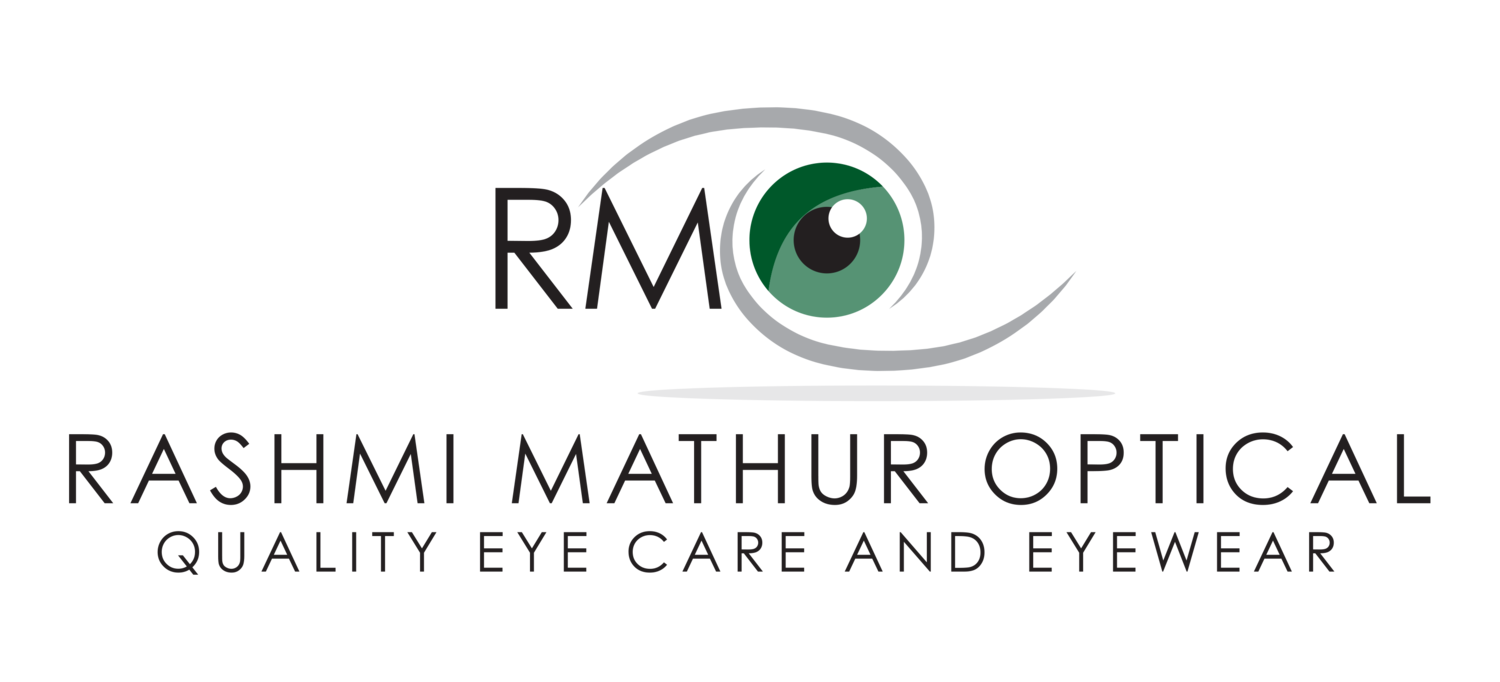Blue Light
What is blue light?
Blue light is everywhere. Sunlight is by far the largest contributor of blue light.
It is also emitted by indoor lighting (fluorescent and LED), TV’s and digital devices - but at a fraction of that from the sun.
Why do my eyes get so tired, dry, sore and red with the computer or watching TV then?
It is not so much the blue light but long hours of use.
Should I get blue light filters on your lenses?
Just as you should protect your eyes in the sunlight, you should protect your eyes indoors. Maybe its not so much what lenses you wear, rather, how you use the computer.
1. Sore eyes - Eyes get dry because while staring at a screen. People blink less so there is not enough lubrication. Use rewetting drops every 4-6 hours. If you wear contact lenses (CLs), give your eyes a break. Using a screen with CLs on for long hours will make your eyes drier.
2. Neck and shoulder strain - Sit at arm's length from the computer screen. Position the screen so you are looking slightly downward.
3. Glare from the screen
Use a matte screen filter
Be mindful of room lighting –don’t watch TV or use digital devices in the dark.
Use the Night Mode filter on your devices. The contrast of light and dark causes eyestrain.



Take breaks using the “20-20-20” rule: every 20 minutes, shift your eyes to look at an object at least 20 feet away for at least 20 seconds.
Did you know?
The sky is blue because of blue light.
The short-wavelength, high-energy light rays on the blue end of the visible light spectrum scatter more easily than other visible light rays when they strike air and water molecules in the atmosphere. The higher degree of scattering of these rays is what makes a cloudless sky look blue.
Is blue light harmful or dangerous to the eyes?
Blue light can penetrate to the retina so there is some thought that it can put people more at risk of getting macula degeneration later in life, but more research on this is needed. Bear in mind that sunlight is X100 times more powerful that indoor lighting and is the largest source of blue light.
Can’t sleep at night?
Blue light is important in regulating circadian rhythm. Just as the sun (and its blue light) set, tell us day from night, so too do lights and digital devices (with their blue light) need to be switched off for sleep. For a better sleep, stop using your devices two hours before going to bed.
So should I get a blue light filter for my glasses?
If you are doing everything listed above and still getting eyestrain, then – yes. There are special filters we can put into your spectacle lenses that are “blue blockers”. Bear in mind though that these are not lenses that we recommend in the first instance to combat eye strain associated with computer use. We would always advise you to make the other changes first. Anecdotally people have found them to be of help. At RMO we do not actively encourage people to get them.
The official position : -
American Academy of Ophthalmology:
"The amount of radiation coming from a computer has never been demonstrated to cause any eye disease".
British College of Optometrists:
"The best scientific evidence currently available does not support the use of blue-blocking spectacle lenses in the general population to improve visual performance, alleviate the symptoms of eye fatigue or visual discomfort, improve sleep quality or conserve macula health."
The symptoms of digital eye strain are linked to how we use our digital devices, not the blue light coming out of them.
